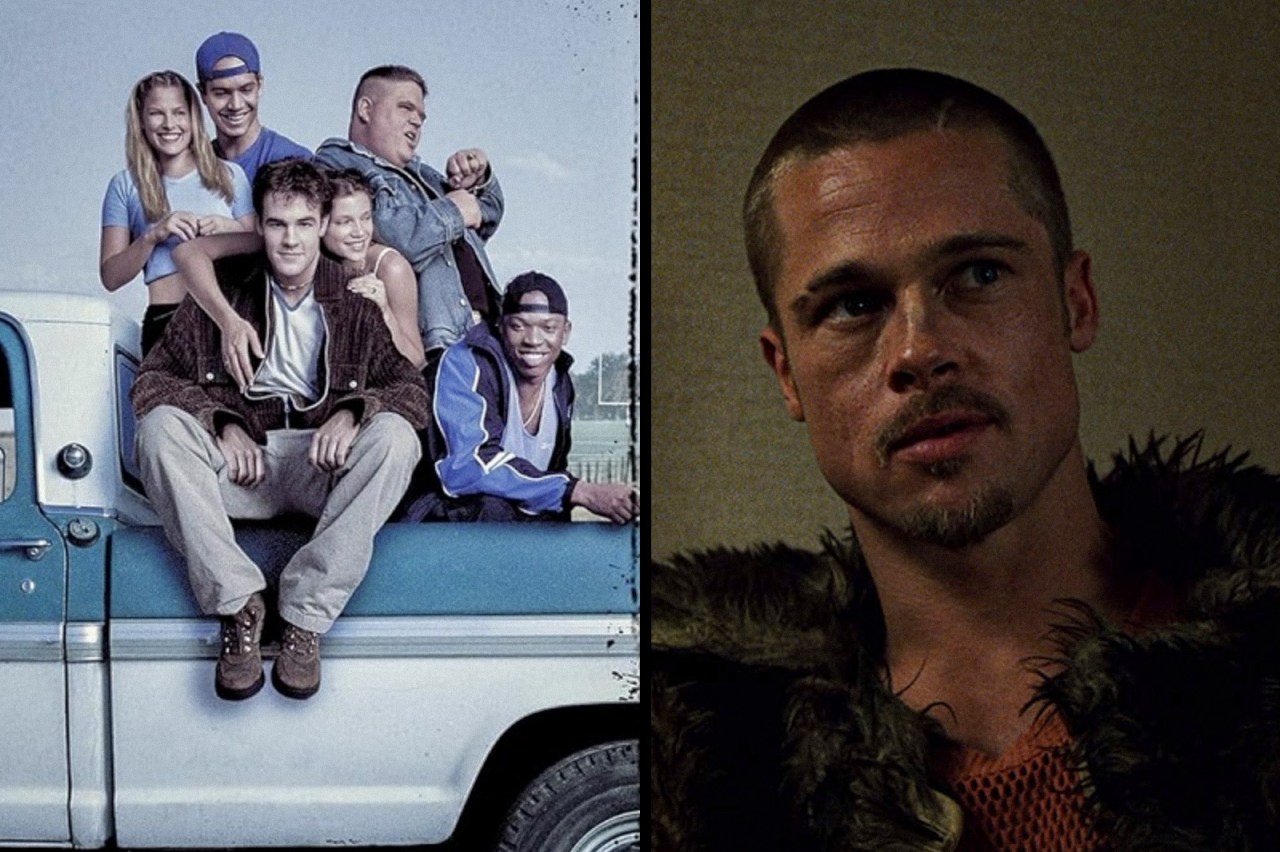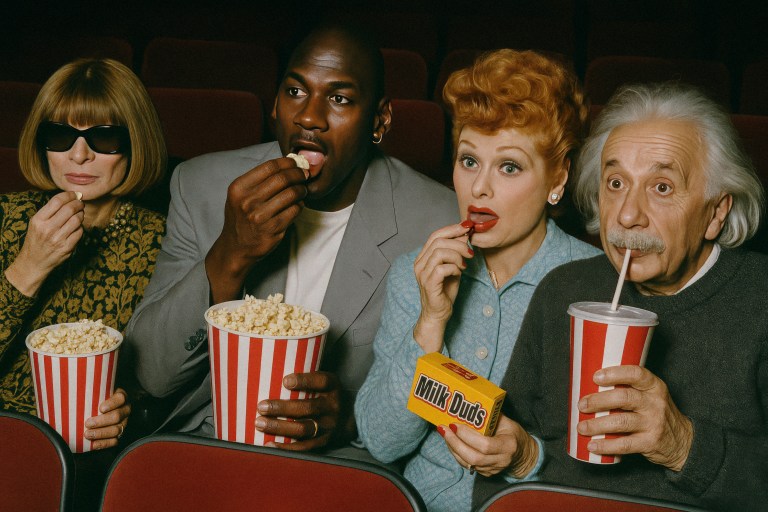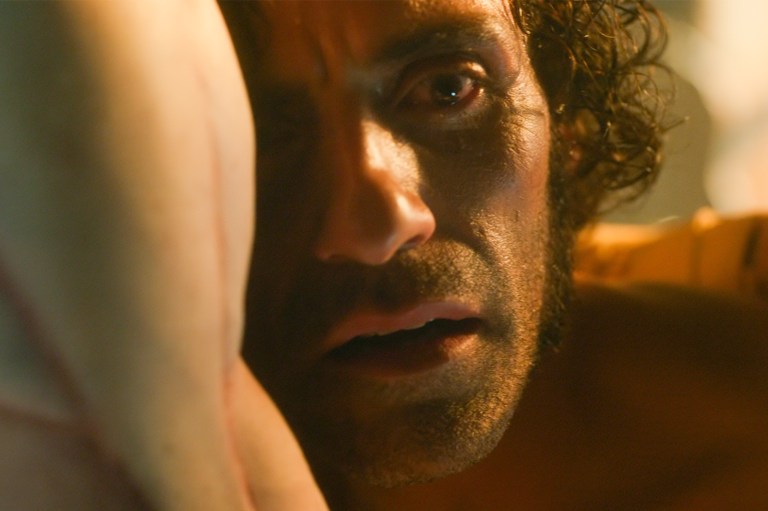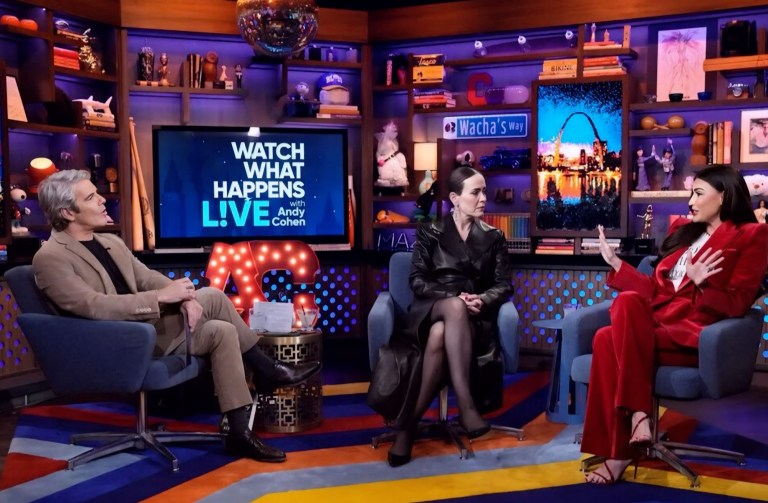
13 Movies That Were So Ahead Of Their Time
By ![]() Lance Pauker
Lance Pauker
So many of these films felt like they came from a time machine, delivering a timeless brilliance.
Varsity Blues (1999)
Varsity Blues was made in 1999 — during the height of the “big hitz” era of football, when things like NFL Blitz and jacked up-style SportsCenter segments ruled the land. Yet, the movie very much makes a point of addressing the dark and disturbing downsides of concussions and other traumatic football injuries — things that are now very prevalent in our collective public consciousness.
Office Space (1999)
Mike Judge’s now-classic film has made a killing in DVD sales but didn’t exactly clean up at the box office. Office Space made only $4.2 million its opening weekend, placing 8th out of all the movies playing that weekend. It ended up with a $10.8 million domestic gross (off a $10 million budget) and made $2 million more internationally.
That said, the movie has always been highly regarded as a critical success. It did great things for Judge’s career (now in charge of HBO’s Silicon Valley), and Milton continues to believe that you have his stapler.
Fight Club (1999)
Fight Club is almost always mentioned in conversations about great movies and has become so pervasive in modern culture that there are entire bars dedicated to Tyler Durden.
But despite its clear place in film immortality, Fight Club wasn’t entirely well-received when it came out — and only initially made back $37 million of its $63 million budget.
Seeking A Friend For The End Of The World (2012)
Definitely a bit premature, but we’ll do some hypothesizing. Seeking A Friend For The End Of The World stars Steve Carell and Keira Knightley and is about two people who unexpectedly find each other in the three weeks before an asteroid hits Earth and is set to wipe out humanity. It flopped at the box office, domestically grossing a little over $7 million on a $10 million budget.
The reviews are generally mixed, but the positive ones have been extremely positive, and its unorthodox take on the traditional rom-com (lighter themes in what should be a tremendously dark plot) may very well have staying power.
Wet Hot American Summer (2001)
One of the most memorable comedies of the past two decades, Wet Hot American Summer, in addition to featuring a cast that would now take upwards of $50 million to assemble, made a paltry $295,000 in theaters. It also received a number of incredibly negative reviews, including this must-read from one Roger Ebert.
Now, it’s the definitive movie for all things Jewish Summer Camp.
The Truman Show (1998)
At the time of its release in 1998, The Truman Show was a highly elaborate, highly unique absurdist concept. Fast-forward to the other side of the year 2000, and reality TV had successfully taken over the world. Pretty fascinating.
Attack The Block (2011)
Attack The Block was a sleeper hit in the summer of 2011. Already considered somewhat of a cult classic, it has been largely praised for its inherently unique style, mashing up the comedy and horror genres in a way that’s sure to become more pervasive as traditional genres continue to be reworked and remolded.
Donnie Darko (2001)
I saw Donnie Darko a few years ago. Before that, I thought it was an old classic that won an Oscar sometime in the 60s — that’s how much it seemed to be revered and talked about (also, that’s how dumb I am).
So when I first saw Jake Gyllenhaal’s tour de force, I was pretty surprised to learn it was initially a flop; grossing only $517,000 during its theatrical run. The film has since become hugely popular and has made quite a bit more money than that paltry original sum.
The Big Lebowski (1998)
Yesterday I saw the movie Life Partners (liked it a lot, definitely recommend). One of my favorite things was Adam Brody’s character’s obsession with The Big Lebowski. The dude obsessed with the Dude is a very real thing, and it was nice to see that portrayed on screen.
The movie inspired me to do some Lebowski Wikipediaing, and I was surprised to learn that its initial reception was far from the beloved status it holds today. The movie barely turned a profit in the domestic box-office, and reviews were rather mixed; part of this seems to stem from the fact that the Coen Brothers made Lebowski right after they made Fargo (a huge hit), and part of it seems to stem from the fact that people didn’t really know what to make of the film.
Dazed and Confused (1993)
Probably the preeminent coming-of-age movie, Richard Linklater’s timeless classic not only inspired an onslaught of films with similar themes but also launched the career of one Matthew McConaughey. It’s 20 years later, and Mr. Alright, Alright, Alright very much has this movie to thank for his continued (and seemingly endless) rise.
But during its time in theaters, Dazed and Confused didn’t even break the $10 million mark. Granted, this was 1993 and it only cost $7 million to make (and it made $8 million), but the numbers definitely belie the cultural impact Dazed and Confused has undoubtedly had on subsequent generations.
Metropolis (1927)
I watched this movie in middle school — I had this German teacher who was all like, “This is the greatest movie ever and is basically the reason Star Wars exists,” and spent weeks teaching us about it. The director (Fritz Lang) is German, but I’m pretty sure her decision to teach us about the movie had little to do with German and a lot more to do with her obsession.
This was the movie that is largely credited with being the precursor to all things science fiction, dealing with themes like wealth inequality, post-industrial dystopia, and other pretentious-sounding things. In many ways, it’s similar to the present-day Dark Knight series.
Lang has been quoted as being unhappy with the film, but film historian Peter Bogdanovich seems to think a lot of that has to do with the fact that the Nazi party enjoyed the movie. Lang was notably very much against the Nazis, having divorced his wife a year after she joined the Nazi Party in 1933.
Shawshank Redemption (1994)
In addition to being 57% of what TNT airs, Shawshank is widely regarded as one of the best movies of all time. Yet, upon receiving its first nationwide release, it made only $2.4 million and finished as the 9th best-selling movie that weekend.
Shawshank initially received the critical praise it’s now known for (it was nominated for 7 Academy Awards, including Best Picture), though it failed to win in any category — this was the year of Forrest Gump.
It’s A Wonderful Life (1946)
It’s A Wonderful Life, also widely regarded as one of the best movies ever made, was considered a box-office failure. Frank Capra had been churning out big-hitters, but It’s A Wonderful Life did not appear to be one of them at first.
From a critical standpoint, It’s A Wonderful Life was nominated for five Academy Awards (including Best Picture) but lost most of them to The Best Years of Our Lives. Capra, however, did nab the Golden Globe award for Best Director.











